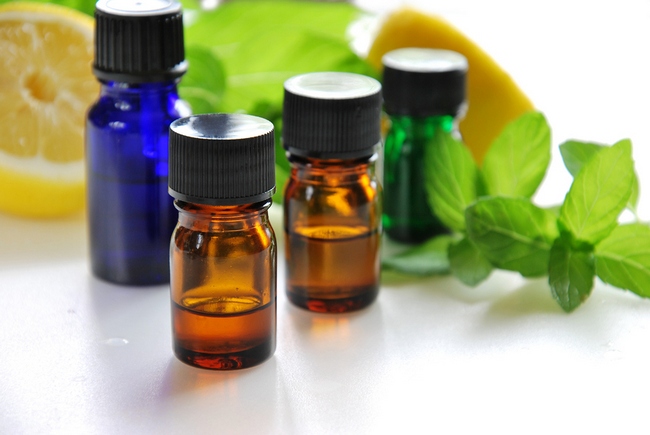- Make It Yourself Lavender Heart-Shaped Bath Bombs!
- 20 Things You Never Knew About “Down There”
- 12 Best Foods For Those Suffering From Arthritis Pain
- 12 Personal Hygiene Mistakes Almost Everyone Makes (Mom Never Told You About #4!)
- 15 Medicinal Plants And Herbs From The Cherokee People
- 12 Mind-Blowing Benefits Of Drinking Coconut Water During Pregnancy
- 12 Outstanding Winter Foods That Won’t Fatten You Up Like A Christmas Turkey
This One Natural Oil Is Just As Effective At Repelling Mosquitoes As DEET

Although winter is still upon us and many of us have yet to cope with the colds and stuffy nose, it won’t be that long before spring has sprung. Or perhaps you have plans for a winter vacation to escape the frosts. Maybe you have plans for the warm beaches of Mexico? Or a trip to Machu Picchu in the Andes mountains? With spring comes those ugly, biting, disease spreading mosquitoes.
Parasitic infections, such as malaria, are a very serious business, especially in some countries where mosquito’s infestation is very high. These countries include Peru, Brazil, Ecuador, and Venezuela. There are an estimated 3.4 billion, yes billion with a B, people who live in areas that are at high risk for the transmission of malaria from mosquitoes. In 2013, there were an estimated 198 million cases of malaria, with about 500,000 of these cases being fatal, according to The World Health Organization.
Mosquitoes carry multiple diseases and parasites. Malaria is one of them but this is a completely curable disease when caught early. Malaria is usually transmitted by the Anopheles mosquito. After a person is bit, they go through a 7 to 30-day incubation period. Once the parasite takes hold, it can last anywhere from 6 hours to a week. Common symptoms are shivering, a high fever, vomiting, headaches, sweating, and fatigue. Complications involve abnormal blood coagulation and organ failure, which leads to the destruction of red blood cells, inhibited oxygen exchange, seizures, and kidney failure.
It’s interesting to note that the two most effective treatments for malaria come from Mother Nature herself. The first, Artemisinin, come from the Qinghaosu plant and Quinine, which comes from the cinchona tree.
Since these two treatments come to us from nature, it is no surprise to discover that a preventative measure to stop mosquitoes from biting in the first place comes to us from nature. Natural essential oils from plants can deter mosquitoes without dangerous chemicals. Studies have shown the lemon eucalyptus essential oil is more effective than DEET.
This essential oil is completely safe and contains a plant oil called p-menthane-diol, which is very effective at repelling mosquitoes.
The London School of Hygiene and Tropical Medicine in England conducted an amazing study which put 4 mosquito repellents to the test. One was a mixture of essential oils, the other was a Neem essential oil, another was a commercially made repellent containing 15 percent DEET, and then eucalyptus oil, which contains about 30 percent p-menthane-diol. All of these compounds were applied to bare skin at the same dose.
The Neem oil and the mixture of essential oils were found to not provide a great deal of protection. As expected, DEET did provide 84.81 percent protection over the 4-hour study period. Now comes the star. Lemon eucalyptus oil provide 96.89 percent protection during the same time frame.
This study completely blows out of the water the belief that you must use dangerous chemicals, such as DEET, to give yourself protection from mosquitoes.
Another study also found that lemon eucalyptus essential oil was just as effective as DEET when it came to repelling several types of mosquitoes during the 6-hour study period.
Studies such as these prove that botanical mosquito repellents can be used with complete confidence. By the way, when we are speaking about lemon eucalyptus oil, we do not mean a mixture of lemon essential oil and eucalyptus oil. There is a type of eucalyptus tree that, when the leaves are crushed, emit a lemon scent.
READ ALSO: Huge List Of Essential Oils And Their Uses (You Will Want To Print This!)
You can make your own spray at home by mixing lemon eucalyptus essential oil in a spray bottle along with some witch hazel and a bit of a carrier oil such as jojoba oil, olive oil, or castor oil.
So go ahead, take that vacation, and be certain that you take along some lemon eucalyptus oil for protection from mosquitoes. Your body will thank you!
References:
































